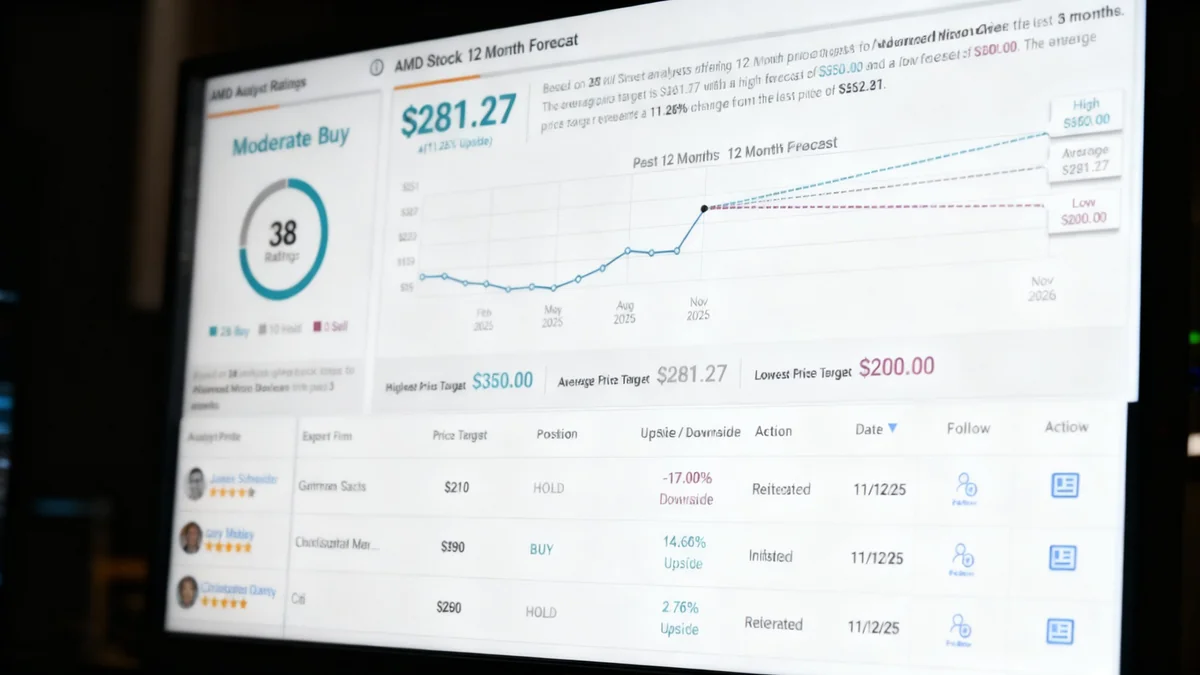In today's digital landscape, the use of personal data for targeted online advertising is a significant concern for many internet users. Companies, including major news and financial platforms like CNBC, collect and process user information to deliver more relevant advertisements. This practice often involves sharing data with third-party partners, raising questions about individual privacy rights and control over personal information.
Key Takeaways
- Online platforms use personal data for targeted advertising.
- Users have options to manage their data privacy preferences.
- Specific state laws, like those in the U.S., provide additional opt-out rights.
- Cookie and device identifier choices are browser/device specific.
- Opting out may lead to less relevant advertisements, not fewer ads.
Data Collection and Targeted Advertising Explained
Many online services, including global business and financial news outlets, rely on advertising revenue. To maximize the effectiveness of these advertisements, companies often collect user data. This data helps identify user interests and tailor ads accordingly. For example, if a user frequently searches for financial news, they might see ads related to investment services.
According to industry reports, targeted advertising typically generates higher engagement rates compared to generic ads. This drives the practice of combining personal information with data across different businesses. These collaborations aim to create a more comprehensive user profile, which then informs ad delivery.
Fact: The Digital Advertising Ecosystem
- The global digital advertising market was valued at approximately $680 billion in 2023.
- A significant portion of this market relies on programmatic advertising, which uses algorithms to buy and sell ad space in real-time, often leveraging user data.
User Rights and Privacy Regulations
The landscape of data privacy is continuously evolving, with new regulations emerging globally. In the United States, several states have enacted laws that grant residents specific rights regarding their personal information. These laws often address the concept of "selling" or "sharing/processing" personal data for targeted online advertising.
For residents in these specified states, companies like NBCUniversal, which operates CNBC, provide mechanisms to opt out of such practices. This is a direct response to legal requirements designed to give consumers more control over their digital footprint.
"Privacy policies are becoming increasingly detailed, reflecting the complex interplay between data utilization and consumer rights," stated a legal expert on digital regulations.
Managing Your Preferences for Cookies and Device Identifiers
One common method for tracking user activity online involves cookies and device identifiers. These small data files stored on a user's browser or device help websites remember information about the user. When it comes to targeted advertising, these identifiers are crucial for personalizing ad content.
Users can typically manage these preferences through a website's privacy settings. It is important to note that choices related to cookies and device identifiers are specific to the brand's website or app and the particular browser or device being used. Clearing cookies will often reset these preferences, requiring users to make their choices again.
Context: What are Cookies?
Cookies are small text files placed on your computer or mobile device when you visit a website. They are used to improve user experience by remembering preferences, login details, and tracking browsing activity. First-party cookies are set by the website you are visiting, while third-party cookies are set by other domains, often for advertising or analytics purposes.
Opting Out: What It Means for Users
For residents of states with specific privacy laws, an opt-out mechanism is often provided. This typically involves a toggle switch on a website's privacy management page. By turning this toggle to the 'off' position and confirming the choice, users can prevent the selling or sharing of certain personal information for targeted advertising.
It is critical to understand the implications of opting out. While it stops the use of data for targeted ads, it does not eliminate all advertisements. Users will still see ads, but these ads may be less relevant to their specific interests, as they will be based only on first-party information collected directly by the website, rather than data shared with other businesses.
Email and Other Personal Information Opt-Outs
Beyond cookies and device identifiers, other forms of personal information, such as email addresses and names, can also be used for targeted advertising. To opt out of the use of this type of information, users are often directed to complete a separate opt-out form. This ensures that preferences for different categories of data are managed effectively.
For example, a user might choose to opt out of cookie-based tracking but still receive email communications if they have not completed the specific email opt-out form. The process is designed to be granular, allowing users to control various aspects of their data privacy.
Essential Tracking Technologies and Functionality
Not all tracking technologies are related to targeted advertising. Some cookies and Software Development Kits (SDKs) are essential for a service's basic functionality. These are required for maintaining security, preventing fraud, and enabling purchasing capabilities on websites and applications.
Users can generally set their browsers to block these essential tracking technologies. However, doing so may impact the site's functionality. For instance, parts of the website may not load correctly, or certain features, like making a purchase, might become unavailable. This highlights the balance between privacy control and website usability.
Mobile applications also offer privacy controls. Users can adjust precise geolocation permissions directly within their mobile device settings. This allows for control over location data, which is another common element used in personalized services and advertising.
Renewing Choices and Ongoing Management
Managing privacy preferences is an ongoing process. As mentioned, clearing cookies on a browser will typically erase previously set choices, requiring users to renew their selections. This is a common aspect of how web browsers and privacy tools operate.
Furthermore, users must make their preference choices on each site or app they use and on each browser or device they access the services from. A choice made on a desktop browser will not automatically apply to a mobile app or a different browser on the same device. This decentralized control ensures that user preferences are specific to each digital interaction point.





